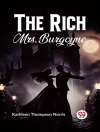Hugh Walpole’s ‚The Silver Thorn: A Book of Stories‘ is a masterful collection that showcases his exceptional narrative ability, blending vivid imagery with rich character development. The stories traverse the landscapes of human experience, reflecting themes of longing, disillusionment, and the arbitrary nature of fate. Set against the backdrop of early 20th-century Europe, Walpole’s prose resonates with an ethereal quality, evoking the complexities of both the individual psyche and the social fabric of the time. Each story unfolds with a delicate precision, drawing the reader into a world where the ordinary becomes extraordinary through the lens of masterful storytelling. As a significant figure in early modernist literature, Hugh Walpole’s literary prowess may stem from his diverse background, which included time spent in both New Zealand and England. His experiences of displacement and transience undoubtedly inform the nuanced emotional depth within his writing. Walpole was a keen observer of society’s undercurrents, and his acute understanding of human psychology enables readers to explore the multifaceted nature of existence through his narratives. For readers seeking a thoughtful exploration of life’s intricacies through the prism of engaging storytelling, ‚The Silver Thorn‘ is an essential addition to any literary collection. It not only reflects Walpole’s unique voice but also invites reflection on the human condition, making it a timeless work that resonates across generations.
Über den Autor
Sir Hugh Seymour Walpole was a prolific English writer, whose career spanned the early to mid-20th century, embracing a variety of genres including novels, short stories, and biographies. Born on March 13, 1884, in Auckland, New Zealand, he was the son of an Anglican clergyman, and his life transported him from New Zealand’s shores to England, where he attended King’s College, Cambridge. Walpole became a notable figure within literary circles, admired for his storytelling and narrative skills. ‚The Silver Thorn: A Book of Stories‘ is one of his collections that showcase his penchant for the gothic and the fantastic intertwined with the psychological depth of his characters (Walpole, 1928). Walpole’s literary style often mingled suspense with an examination of personal morality, set against the backdrop of the English landscape. His influence extended as a mentor to younger writers and as a wartime propagandist. While tastes in literature shifted following World War II, and Walpole’s popularity waned, his work remains a testament to an era of transition within English literature, bridging the Victorian and Modernist sensibilities. Walpole was knighted for his services to literature in 1937 and left behind a legacy of over 40 novels, as well as plays and a biography of Sir Walter Scott, before his death on June 1, 1941.












